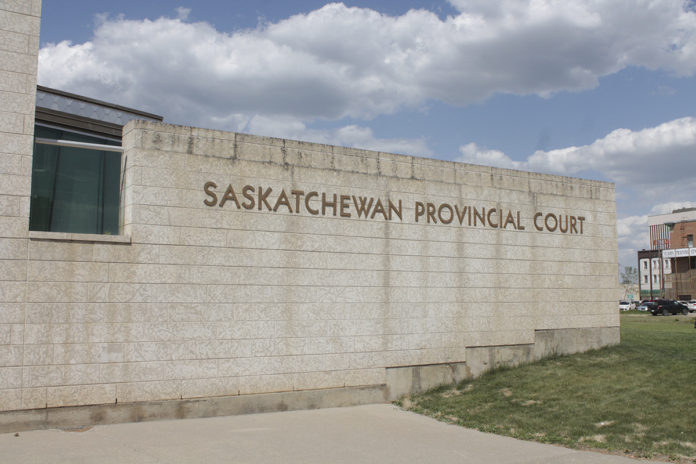Bianca Bharti, Daily Herald
The union representing Legal Aid Saskatchewan employees is worried about province-wide fallout from staff cuts announced at the Saskatoon office.
CUPE 1949 met with the Prince Albert office on Wednesday to discuss the privatization and restructuring of Legal Aid and how it will affect people who need it.
Two weeks ago, Legal Aid CEO Craig Goebel informed employees that three of the four duty counsel positions will be contracted out to the private bar and four support staff positions will be laid off at the Saskatoon office.
On top of that, the commission will implement a telephone application centre in Regina, removing the two eligibility officers from their positions in Saskatoon.
Though the Daily Herald made numerous attempts to reach Goebel by phone, he only responded by emailed statement through his spokesperson, Kyla Shea.
“This is an operational decision to make some structural changes,” Goebel said in the statement. “The changes… are not a result of funding cuts.”
However, the union’s vice-president said none of the reasons provided for the cuts make sense. “The fabric of our legal aid office will be destroyed,” said Deb Hopkins. She said she was concerned that these Saskatoon cuts will make their way around, even at the Prince Albert office.
Goebel informed the union that due to higher remand rates in Saskatoon versus Regina, complaints from other agencies and legal aid lawyers accepting stricter bail conditions, these cuts would be made, Hopkins said.
According to Hopkins, of the 460 men in the Saskatoon provincial correctional centre, 55 per cent are in remand. In Regina, of the 652 prisoners, 51 to 52 per cent are in remand. What’s skewing the numbers, she said, is that Saskatoon sends its sentenced prisoners (those not on remand) to Regina because it’s a larger facility, thus inflating the remand numbers in Saskatoon.
“Saskatoon sends a bunch of their prisoners to Regina to serve out their sentences,” she said. “So our remand rate is lower than Regina. When we’re given this explanation for why this is happening, then we question the authenticity of this justification.”
When the union asked which agencies complained, the commission wouldn’t provide the information, according to Hopkins. She also said legal aid lawyers fight to lower bail conditions for their clients because they understand they need flexibility to succeed when out in the real world, while also protecting the public.
Private bar will take cases
With this new restructuring, people seeking legal aid will have to phone a call centre in Regina to apply. “To meet someone face to face is very important in getting that information and gauging them,” Hopkins said. People who have histories of addiction, mental health problems or literacy problems will now face a system that’s “overstretched and anonymous.”
The remaining duty counsel in Saskatoon will handle early resolution cases and the high-complexity cases while the medium-complexity cases will be farmed out to private lawyers.
The reason for the shift in service is to provide people “a majority of duty counsel service” when needed. “That means there will be more lawyers available when people are arrested, such as on weekends,” Goebel wrote in his statement.
During the process, the private bar, local prosecutors and legal aid lawyers were not consulted, according to Hopkins. “This is going to hurt our clients. We have decades of experienced people that work in duty counsel. We have all kinds of background information on (clients) since they were youths… and we’re capable of putting forth Gladue factors.”
Hopkins said legal aid lawyers have extensive histories with the people they represent. “Sometimes I represent people in Saskatoon that I represented in La Ronge in 1998. I can put my hands on psychiatric reports, pre-sentence reports — all kinds of resources that I have just because we have this system.”
Greg Chovin, a lawyer at Novus Law Group in Prince Albert said he is concerned about the cuts and that funding to legal aid in the province is substandard.
“I know a great number of legal aid lawyers and some of them are among the best lawyers I know. This is the work that they do,” he said. “They don’t dabble in criminal law, they don’t dabble in family law. These are their jobs and a lot of them are top quality lawyers.”
Legal aid problems outside Sask.
Unlike other provinces in Canada, Legal Aid Saskatchewan only deals with criminal and family law. They do not provide help for immigration, housing or government assistance matters.
When British Columbia cut funding to legal aid in 2002, 45 offices closed. Since then, the Canadian Bar Association B.C. branch reported that 40 per cent of family law cases are individuals who are self-represented. For criminal cases, one in five people are self-represented. According to the report, the self-represented cases take up more time in the justice system and more taxpayer-funded resources.
Due to the cuts, B.C. legal aid services are only able to take the most serious cases, where someone’s safety is threatened or there is a serious access denial to children.
“There’s a lot of concern out there for what this is going to mean for the amount of service that can be provided (for Saskatchewan),” said Nicole Sarauer, NDP house leader and justice critic.
“It’s changing the conversation from what we should be talking about around legal aid…. We should be talking about how we can better invest in legal aid and make it a more robust system, how we can ensure legal aid is helping more people in our province rather than laying off staff and cutting offices.”
In Saskatchewan, people must meet strict criteria in order to qualify for legal aid. A person must be on social assistance or band assistance to immediately qualify. If a person has low income, they must meet certain criteria to potentially qualify.


